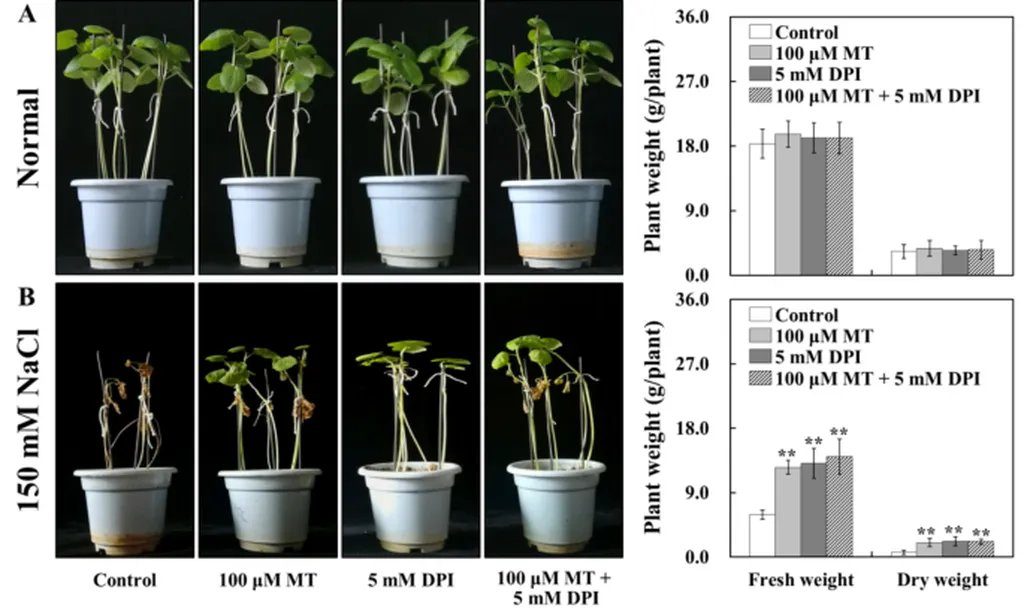In the heart of China’s agricultural research, a team led by Xi Yang at the Institute of Environment and Sustainable Development in Agriculture, Chinese Academy of Agricultural Sciences, has uncovered a fascinating story of resilience and adaptation in one of our most versatile crops: okra. Their work, published in the journal *Frontiers in Plant Science* (translated as “Plant Science Frontiers”), sheds light on how okra copes with soil salinity, a growing challenge in agriculture that threatens crop yields and food security.
Soil salinity is a silent menace, particularly in marginal and irrigated agricultural zones. It’s a problem that’s only expected to worsen with climate change, making research like Yang’s increasingly vital. “Soil salinity is an increasingly critical constraint on crop establishment and yield stability,” Yang explains, highlighting the urgency of the issue.
Okra, a crop of significant nutritional and economic value, has long been known for its hardiness. But until now, the mechanistic basis of its salt tolerance has remained a mystery. Yang’s team set out to change that, integrating physiological phenotyping with transcriptome profiling to elucidate the stage-specific strategies employed by okra in response to NaCl stress.
Their findings revealed a bifurcated salt response: germination was highly sensitive, with complete inhibition at NaCl concentrations of 0.5% or higher. However, seedling growth exhibited a hormetic pattern, being promoted under mild salinity (0.1–0.3%) and suppressed at higher levels. This suggests that okra has a unique, two-phase response to salt stress, a finding that could have significant implications for agricultural practices.
The team’s transcriptomic analyses revealed that moderate salt stress elicited the coordinated activation of ion homeostasis genes, calcium signaling components, and GH3-family auxin-responsive genes. “This suggests a critical role for dynamic auxin conjugation in growth maintenance under ionic stress,” Yang notes, pointing to potential targets for genetic improvement.
But the implications of this research extend far beyond the field. In an era of climate change and increasing food demand, understanding and harnessing the salt tolerance of crops like okra could be a game-changer. It could open up new opportunities for agriculture in saline areas, contribute to land reclamation efforts, and ultimately, enhance food security.
Moreover, the energy sector could also benefit. As the world shifts towards more sustainable energy sources, the demand for biofuels is expected to rise. Crops like okra, which can thrive in saline conditions, could become valuable feedstocks for biofuel production, helping to meet this growing demand while also reducing the pressure on fresh water resources.
This research is a testament to the power of scientific inquiry and its potential to drive innovation and progress. As we face the challenges of a changing climate and a growing population, understanding and harnessing the resilience of our crops will be more important than ever. And with researchers like Xi Yang leading the way, the future of agriculture looks a little brighter.

